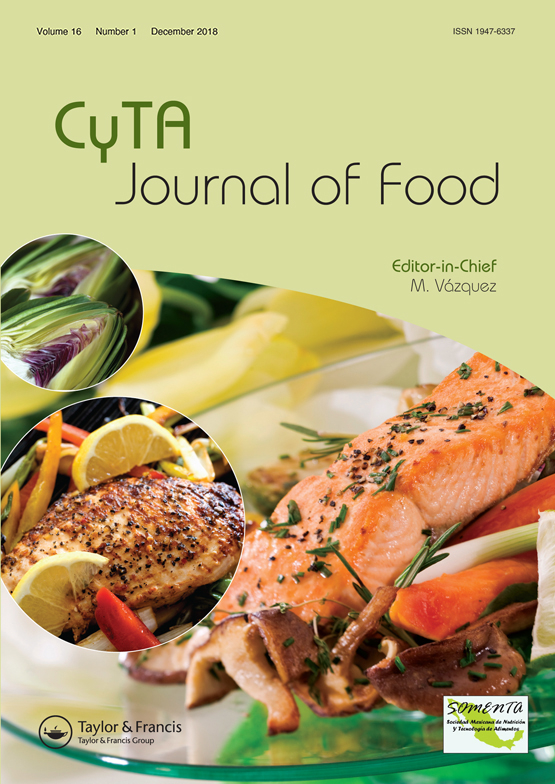Research from the University of Southampton shows that future choices about trade, diet and climate change will be crucial to securing micronutrient food supplies for the UK.
Scientists conclude that factors such as Brexit, the move to plant-based diets and any further disruption from the COVID-19 pandemic will have major influences on our food supply and in turn the range and level of micronutrients available to people through their food.
The UK is not self-sufficient in a number of key vitamins (A and C) and minerals (calcium, zinc and iron). We rely on imports, rather than domestic production, to provide enough of these micronutrients to ensure that the population can receive the recommended daily allowance.
“The pandemic has shown the importance of nutrition in staying healthy and fighting infection. It is important for public health that people can maintain a healthy diet through readily available food sources,” said the lead researcher. , Professor Guy Poppy, who is also Executive Deputy Chair of the Biotechnology and Biological Sciences Research Council (BBSRC). “If the UK is to become more nutrient self-sufficient, a range of actions will be needed to change production and the amount grown domestically, along with some significant changes in consumer food choice.”
The researchers examined data from a number of sources showing how micronutrient safety has varied between 1961 and 2017. They also analyzed 2017 foreign trade data from HMRC to assess foreign food supply before leaving the EU and run future scenarios about domesticity. production, import and supply of animal and plant food sources.
Findings, published in the journal Nature Food, show that since the 1960s the UK has become much more reliant on imports to secure micronutrients. For example, before joining the EU, most of our vitamin C was produced at home, but we now import the majority in the form of fruit and vegetables. Around half of all these imports come from European countries, with Spain and the Netherlands being the most significant contributors. The research also highlighted that trade agreements over the last sixty years have affected the supply of key micronutrients, emphasizing the importance of trade on food supply as the UK negotiates post-Brexit deals.
Co-author of the paper, Dr Jenny Baverstock, added: “There is growing demand for a more plant-based diet to help tackle climate change – but this will be a challenge based on current patterns, and especially if we continue to rely on imports of fruit and vegetables that cannot be grown in the UK.
“This increase in vegetarianism and veganism will require careful policies and decisions, as the bioavailability of micronutrients from meat and milk is something that is not easily replicated by plants. It will be necessary to consider how to ‘eat for the health of the humanity’ too. like ‘eating for the health of the planet’.”
The materials are provided by the University of Southampton. Note: Content can be edited for style and length.
What do nutrition consultants do?
Nutritional consultants help develop eating plans that promote a healthy metabolism, a good immune response, and a healthy body weight. As a nutrition consultant you would be involved in the following activities: Discuss and analyze clients’ current eating habits.
What is the difference between a certified nutritionist and a nutrition consultant? Being a nutritionist requires a lot of time, unlike having the title of nutrition consultant. Key responsibilities: Help patients with specific health problems and prepare an effective diet plan. On the same subject : The demand for food aid is rising as costs rise – Port Arthur News. Promote a healthy diet through appropriate eating habits and the importance of being active.
What is a food and nutrition consultant?
A nutritional consultant is a licensed nutritionist who consults with private clients. As a nutrition consultant, you provide sound nutrition and health advice to your clients. Clients can be private companies, individuals, or public health organizations.
How much is a nutrition consult?
Typically, nationwide, a nutritionist can cost between $70 and $100 on average. Many nutritionists require an initial consultation to assess the nutritional and dietary needs of the client in order to determine the best course of action. See the article : Adele’s seventh weight loss comes down to 3 lifestyle changes. Initial one-hour consultations with a registered nutritionist might cost around $100 to $200.
Are nutritionists in high demand?
Nutritionist jobs are in high demand, and the US Bureau of Labor Statistics predicts that the job outlook for nutritionists and dietitians will grow faster than average for the next few years. Read also : ‘Food Swamp’ vs. ‘Food Desert’: What’s the Difference?.
What are the 7 characteristics of a balanced diet?
There are seven essential factors for a balanced diet: carbs, protein, fat, fibre, vitamins, minerals and water. The approximate percentage of daily calories that should come from each factor is shown in Table 10.
What are the 5 characteristics of healthy eating?
What are the 6 types of balanced diet?
The six essential nutrients are vitamins, minerals, protein, fats, water and carbohydrates.
What is a balanced diet answer 7?
Define a balanced diet. Answer: A diet that contains the correct proportions of carbohydrates, fats, proteins, vitamins, minerals, and water necessary to maintain good health.
What are the 6 principles of healthy eating?
When designing a practical eating regimen, diet planners often recommend the ABCDMV approach – the six basic principles of adequacy, balance, calorie control, density, moderation and variety.
Which of the following is not a characteristic of balanced diet?
The answer is low in carbohydrates. Food that is low in carbohydrates is not a feature of a healthy diet because carbohydrates are one of the most important things that people need to have a healthy body.
Which of the following is not part of a balanced diet? Therefore, the correct answer is ‘Nucleic acids and enzymes’
Which of the following is not a characteristic of balanced diet *?
The answer is low in carbohydrates. Food that is low in carbohydrates is not a feature of a healthy diet because carbohydrates are one of the most important things that people need to have a healthy body. Lack of carbohydrates can affect the human body in different ways. Therefore, one should eat foods that have all the important nutrients.






